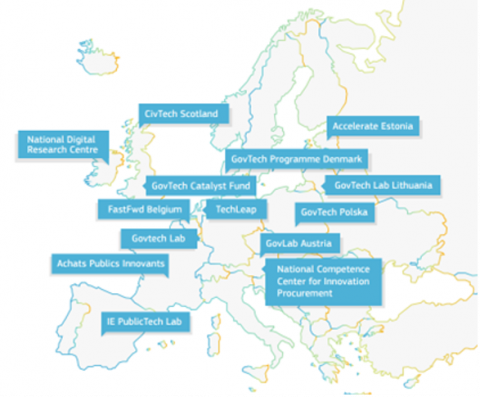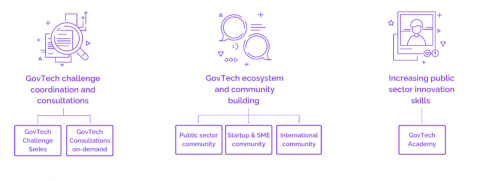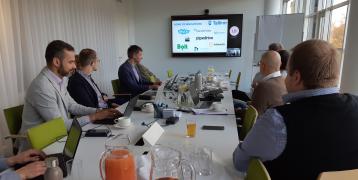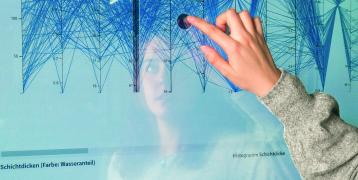GovTech and digitalising the public sector
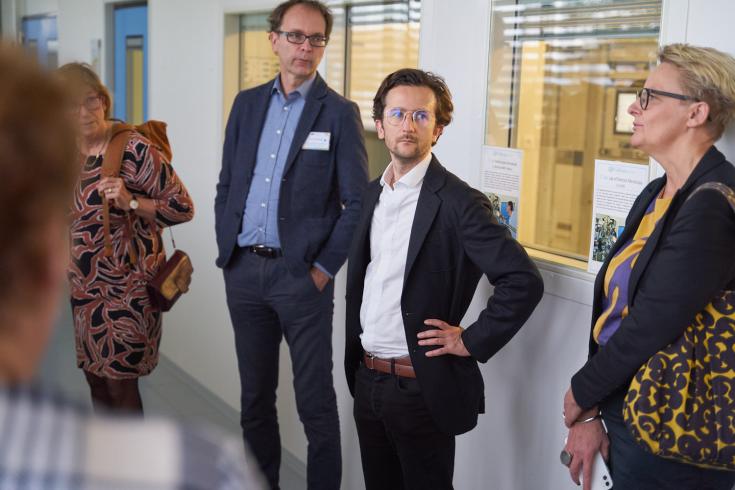
On Wednesday 23 November 2022, the Policy Learning Platform held a webinar on the topic of GovTech and the digitalisation of the public sector. There are increasing efforts for governments to digitalise public services to achieve digital and green twin transitions.
The Digital Europe Programme is the EU funding programme focused on bringing digital technology to businesses, citizens, and public administrations. Digital services or e-services are seen as crucial to improve public services and engage civil society and address major societal challenges or missions defined by the European Commission.
The European Commission has launched several initiatives to support governments to embrace GovTech programmes to digitalise public services. Such as the European GovTech Incubator which is being developed to enable cross-border and cross-domain experimentation.
The concept of ‘GovTech’ refers principally to the use of emerging technologies and digital products and services by the government sourced from start-ups and SMEs—instead of relying on large system integrators (read GovTech Practices in the EU and Scoping GovTech dynamics in the EU).
GovTech shares the following three common elements:
- the public sector engages with start-ups and SMEs to procure innovative technology solutions
- for the provision of tech-based products and services
- in order to innovate and improve public services and address major challenges
European governments are increasingly establishing GovTech programmes with the aim to deliver better digital public services, modernize legacy IT infrastructures, and find solutions to some pressing societal challenges.
Webinar agenda
Concept and moderation by Arnault Morisson and Marc Pattinson, Thematic Experts of Research and innovation.
00:01:03 Introduction to the topic by Arnault Morisson
00:15:15 Presentation by Arūnė Matelytė from GovTech Lab Lithuania on what is GovTech and how to engage regions
00:26:14 Q&A: Can you give us an idea of the budget and staff level of this lab?
00:27:29 Q&A: In terms of your experience at regional level, are there any aspects you would raise awareness of?
00:31:23 Q&A: What is the role of citizens in the design of services?
00:36:11 Bernhard Gerhardter from the Regional Government Lower Austria on Digit Contest
00:52:01 Q&A: Has anything changed in terms of the second contest based on the lessons learnt from the first contest?
00:53:38 Q&A: How are the IT development costs and support for the projects tackled?
00:54:29 Q&A: What are the criteria the jury has for selecting projects?
00:56:45 Fredrik Kjellman Ölmerud from the region Västernorrland, Sweden on E-citizen Week
01:05:45 Q&A: What type of feedback did you get when you presented this project of e-citizen week to the ERUDITE project?
01:08:04 Q&A: You mentioned the focus on the eldery, is there a plan to have a thematic focus each year? If so, how are those priorities decided?
Panel discussion
01:12:09 Q&A: What was the main challenges you faced?
01:20:07 Q&A: Have you been able to push an interregional dimension with your initiatives?
Key learnings
From this webinar, we can highlight some key insights for local and regional policymakers:
The GovTech Lab is a Lithuanian platform composed of 5 employees to support public institutions in identifying challenges and in engaging startups and SMEs to find innovative digital solutions. The initiative strengthens public-private collaboration and promotes the use of innovative services in the public sector.
The GovTech Lab offers GovTech Challenge Series that works in a five-step process:
- A public sector institution submits its challenge
- GovTech Lab evaluates the challenge and launches the competition to find innovative solutions
- Startups, SMEs, and entrepreneurs bid in the competition with their innovative solutions
- GovTech Lab with the public sector institution and experts select the best proposal
- The private sector actors participate to the GovTech Incubator programme to prototype and develop the innovative solution.
GovTech Lab allows public sector institutions to start thinking about innovation, to prioritise challenges, to connect them with the private sector, and to find solutions with social impacts.
- The public sector must engage with exploratory innovation and work with skills, expertise, and ideas from entrepreneurs to find digital solutions. GovTech Lab is not about technology but also co-creation with startups, companies, academia, and the public sector. Thus, it is important to build a strong community of start-ups and the public sector eager to cooperate and a willing “first client”.
- Regional initiatives can promote digital participation among citizens, particularly the persons who are less likely to use e-services, such as elderly people. The example from Västernorrland, Sweden, e-citizen week - an effort to increase the use of e-services aims to build knowledge on e-services for targeted groups and to create an opportunity for dialogue between e-service developers and end-users.
- Public servants can be engaged and empowered to find digital solutions for the public sector. The good practice “digi contest” – Regional call for digitalisation projects of public authorities is a competition to promote digital ideas from public servants to promote the digitalisation of the Lower Austria provincial administration. It has highlighted the importance of securing high-level executive or political support to launch the process and the need to work closely with the “idea holders” to help them shape their ideas.
- All the speakers also highlighted the value added of interregional cooperation, sharing experiences and digital solutions and the need to work closely with public procurement stakeholders to facilitate implementation.

